Thought leaders at a China Daily roundtable envision a renewed superconnector identity for the city, including innovative growth in technology and supply chains, and stronger business and financial services.
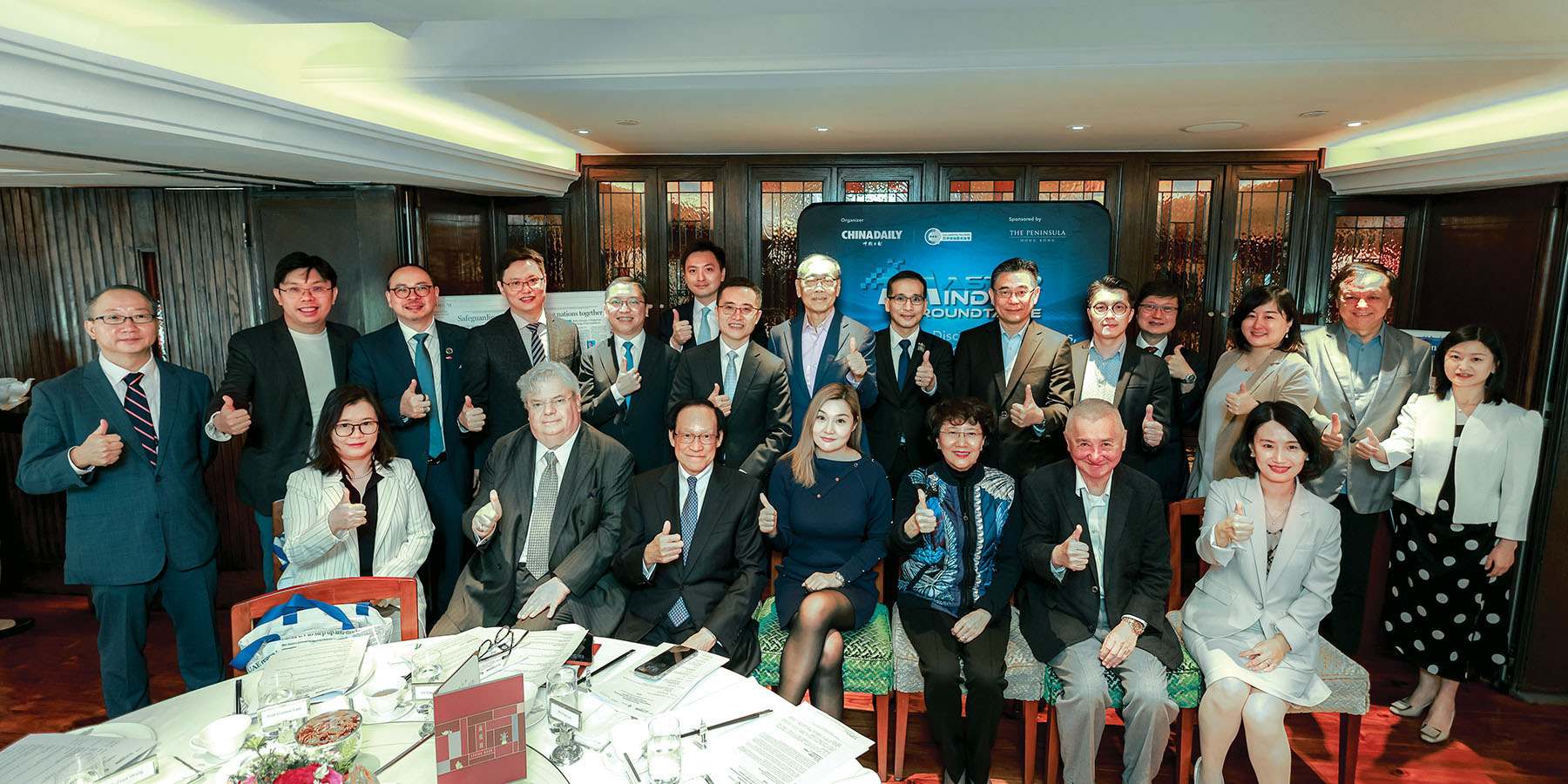
Amid changes in today’s multipolar world, Hong Kong needs to reinvent itself by focusing on redefining its superconnector role, embracing mindset changes, building capacity, and finding a new growth trajectory in innovation and technology, supply chain management, and business and financial services, panelists said at the Mastermind Roundtable organized by China Daily on Tuesday.
Themed “Thought Leaders Dialogue: Resilience and Reinvention: Hong Kong’s New Growth Trajectory”, the roundtable was attended by government officials, scholars, business leaders, entrepreneurs and thought leaders who shared their insights into Hong Kong’s transformational journey.
ALSO READ: Forum: HK needs 'reinvention' amid changes in a multipolar world
“Hong Kong is in the midst of changes, and all of you talk about how Hong Kong people embrace, manage and lead change to make Hong Kong a much better society and city and even a better home for us,” said Edward Tse, founder and CEO at Gao Feng Advisory Co, who moderated the roundtable.
READ MORE: G20 Summit: Xi calls for multipolar world, inclusive globalization
As stakeholders need to entertain a more balanced and broader view of the world because of changes in the nature of globalization, the definition of Hong Kong as a superconnector has progressed. Many of Hong Kong’s superconnector activities as an intermediary between the Chinese mainland and the world are occurring in digital technology and the supply chain, in addition to finance and real estate.
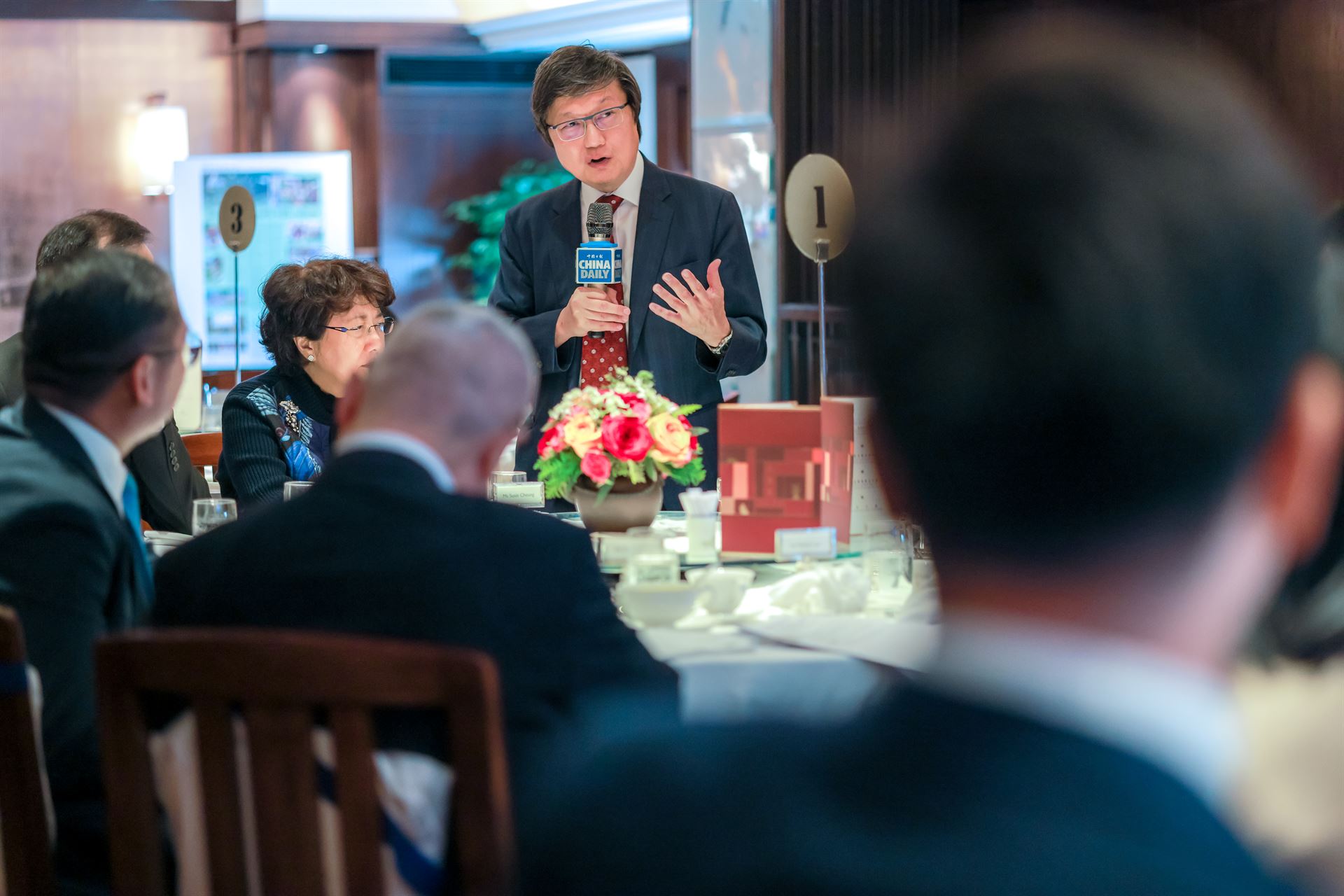
“Our advantage is as the superconnector between the Chinese mainland and the world. What should not be changed is that Hong Kong should keep its intermediary functions in performing its superconnector role, but the city needs to think what to connect to, how to connect and with whom to connect,” said Edward Chen Kwan-yiu, honorary professor at the HKU Business School and fellow of the Hong Kong Institute for the Humanities and Social Sciences at the University of Hong Kong.
“We cannot do everything comprehensively, but we can do something specifically,” Chen emphasized.
READ MORE: Chan: Hong Kong eyeing gold, commodity trade as new growth drivers
HKGolden50 Founder Franklin Lam added: “Recent geopolitics has made Hong Kong the first choice for offshore capital raising by mainland companies and returnee Asians avoiding glass ceilings abroad as well as Western companies locating their sensitive functions in the region. This concentrates new opportunities into Hong Kong and restores Hong Kong’s pre-1997 uniqueness as the ‘nib in the hourglass’ between the Chinese mainland and the West. Thus, Hong Kong has moved beyond a superconnector and now is a super superconnector.”
Andrew Wells, chairman of China Golden Bridge Group, said that Hong Kong’s unique position as a bridge between the Chinese mainland and the Commonwealth nations represents a crucial strategic advantage that should not be overlooked, with intra-Commonwealth trade levels annually approaching over $2 trillion.
“The fact that Hong Kong is the only city in the country where English is an official language is actually just as important as common law,” Wells said. “It makes all business communications convertible internationally.”
Fred Wang, chairman of Salon Films Group of Companies, highlighted Hong Kong’s emerging role in facilitating China-Saudi Arabia relations.
READ MORE: Multipolar world order represents best choice
“The connection of bringing China to Saudi Arabia is even more important today,” he said, noting his recent observations at a Saudi economic conference. “I saw more than 200 Hong Kong delegates there.”
Regarding mindset changes, Chen from the HKU Business School said that Hong Kong should embrace mentality changes by shifting its focus to the Global South countries, including those in the Middle East, Latin America, the Association of Southeast Asian Nations and Central Asia.
“To make this mindset change, it starts with education. It may need to change our curriculum as we are learning so much Western history. Now, it is the time to learn Eastern history, cultures and languages,” the professor added.
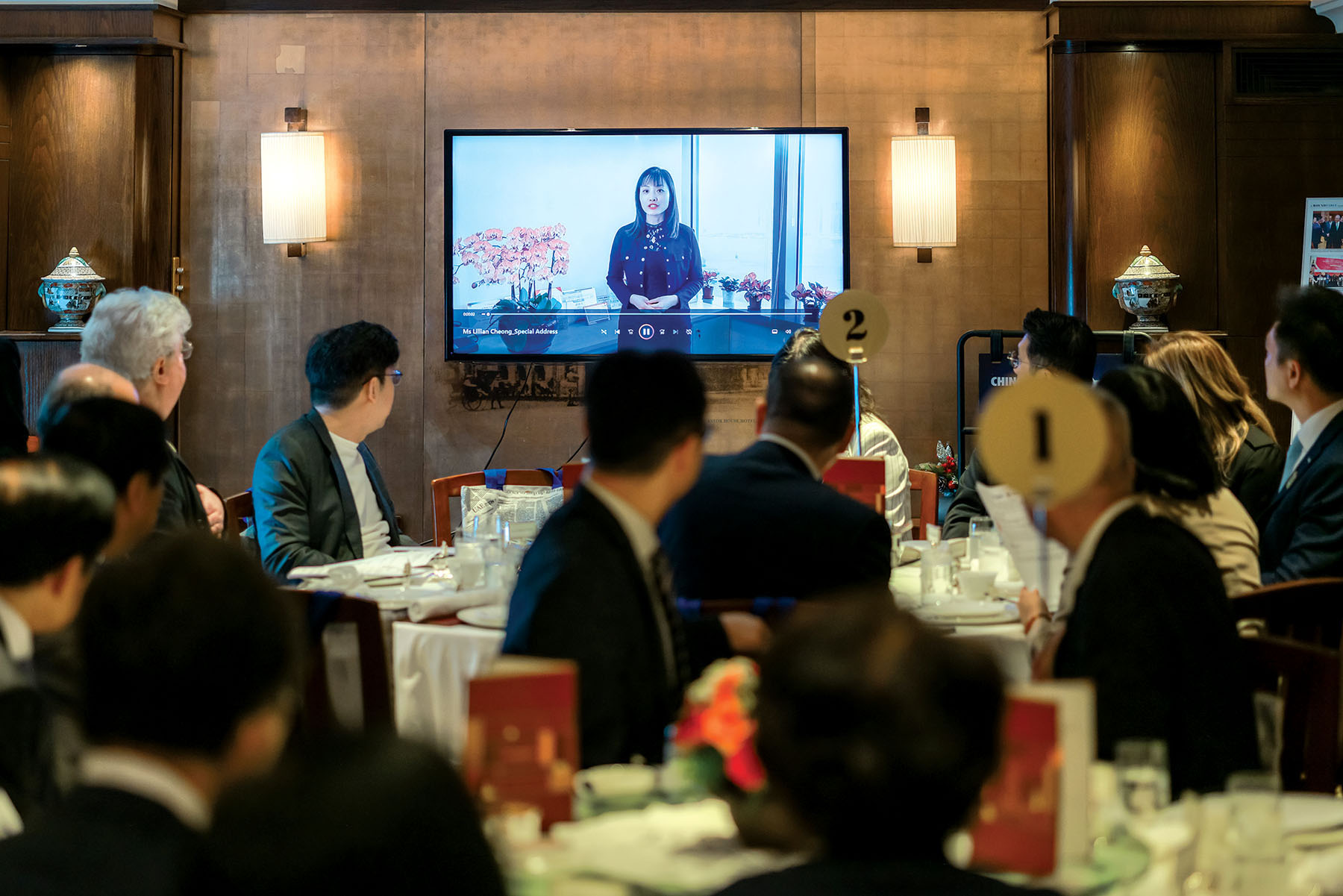
Building capacity is also important in this reinvention journey.
Lam urged Hong Kong to boldly apply the newly reestablished power of an executive-led government to significantly augment the city’s business and population capacity to meet the huge market potential that has been opened.
“Hong Kong should look for per capita income to rise over 50 percent to come close to that of Singapore, which does not have the benefit of an immediate hinterland of the Guangdong-Hong Kong-Macao Greater Bay Area and a huge parent. Surpassing London and later New York is the destiny I can see for Hong Kong,” he said.
Charles Li Xiaojia, founder and chairman of Micro Connect, said Hong Kong should aim to become a metropolis of 10 million people driven by technology talent.
READ MORE: BRICS promotes multipolar and fairer world order
Li called for a dramatic expansion of the city’s population and identified two key groups of potential immigrants: “Technology professionals from the Chinese mainland who want to (move overseas), and hundreds of thousands of technology people around the globe who want to return to the mainland but not directly to the Chinese mainland. Hong Kong can be their home.”
Eleanor Mak, founder and chairman of China New Energy Sky Railway International Ltd, said, “The Northern Metropolis development project is a grand plan expected to create over 650,000 jobs, injecting new vitality and opportunities into Hong Kong’s economy.”
READ MORE: Putin: BRICS commits to building democratic, multipolar world
“Hong Kong’s nine major infrastructure projects can generate returns up to four times the original investment over 30 years,” she added.
Panelists agreed that Hong Kong should focus on three sectors as the future engines for its reinvention trajectory.
First is the innovation and technology industry. “We will adhere to the industry-oriented principle, promoting technology with talent, leading industries with technology, attracting talent with industries, and to continue to perfect our I&T ecosystem,” said the city’s Under Secretary for Innovation, Technology and Industry Lillian Cheong Man-lei during a prerecorded speech at the roundtable.
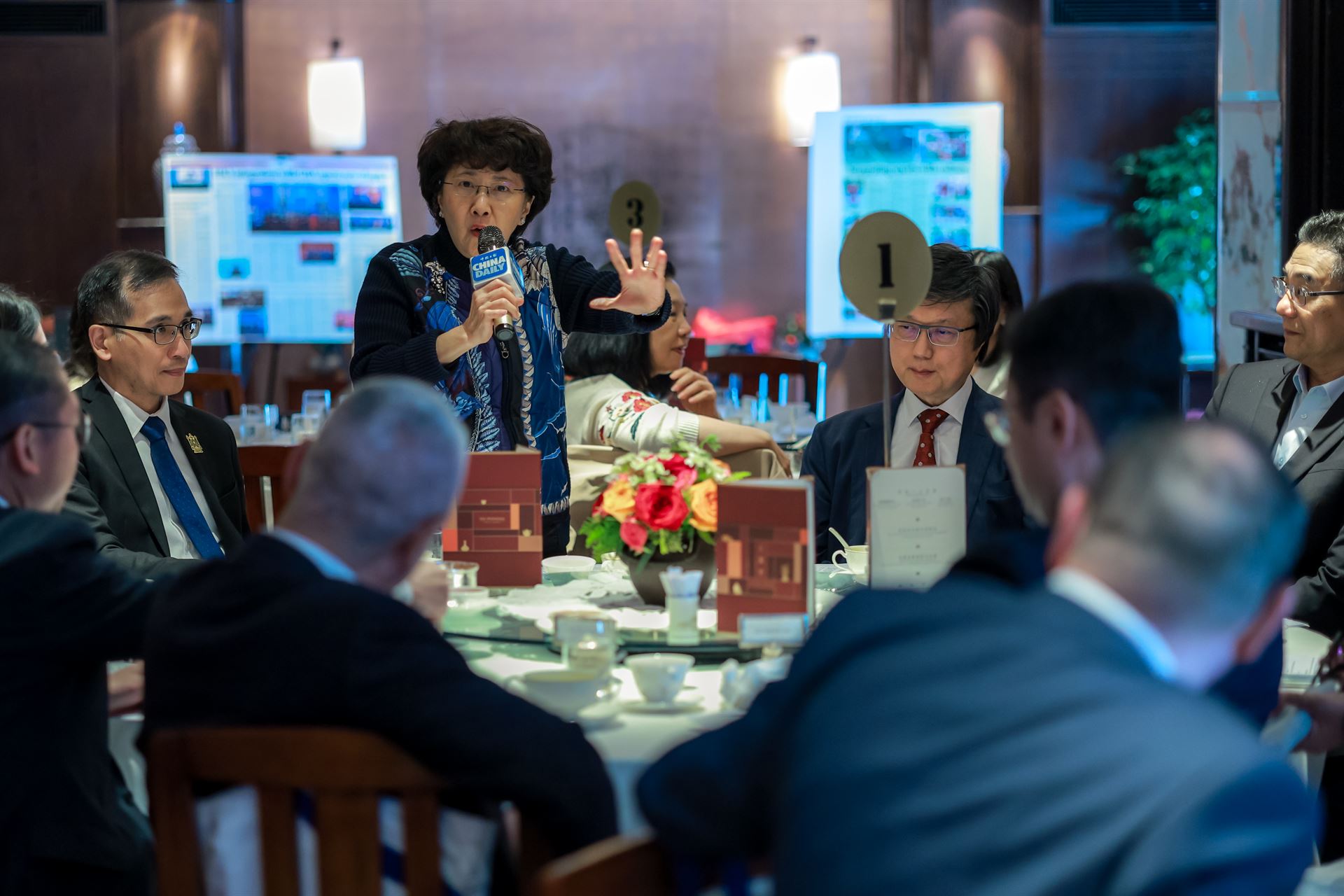
Cheong said the government of the Hong Kong Special Administrative Region will harness I&T development by pressing ahead with the establishment of the Hong Kong New Industrialization Development Alliance, setting up a HK$10 billion ($1.28 billion) I&T Industry-Oriented Fund in the form of a fund of funds, starting the Pilot I&T Accelerator Scheme with a funding allocation of HK$180 million, and establishing a third InnoHK research cluster.
ALSO READ: Policy address to uncover new growth areas in traditional industries
Simon Je, founder and chairman of the Hong Kong International Family Office Association, said he will be the ambassador for Hong Kong-made technologies.
“There are a lot of good technologies developed by Hong Kong and mainland scientists and entrepreneurs. We need to change our mindset to create more opportunities for our technological enterprises, and to create leadership to bring these enterprises from Hong Kong and the mainland for accessing global investors and funding opportunities and fostering our local technology development,” Je said.
READ MORE: Malaysia champions multipolar world order
“We stay here for the development of Hong Kong and the Chinese mainland,” he added.
Edmond Yew, senior vice-president of Lai Fung Holdings Ltd, said, “Hong Kong must sharpen its focus on high-tech and innovation sectors that drive economic growth but also long-term resilience and diversification.”
“The Hong Kong Investment Corporation can serve as a critical enabler, deploying patient capital to invest in long-term, high-end technology development. By prioritizing sectors such as artificial intelligence, robotics, and biotechnology, Hong Kong can establish itself as a global leader in next-generation technologies,” Yew added.
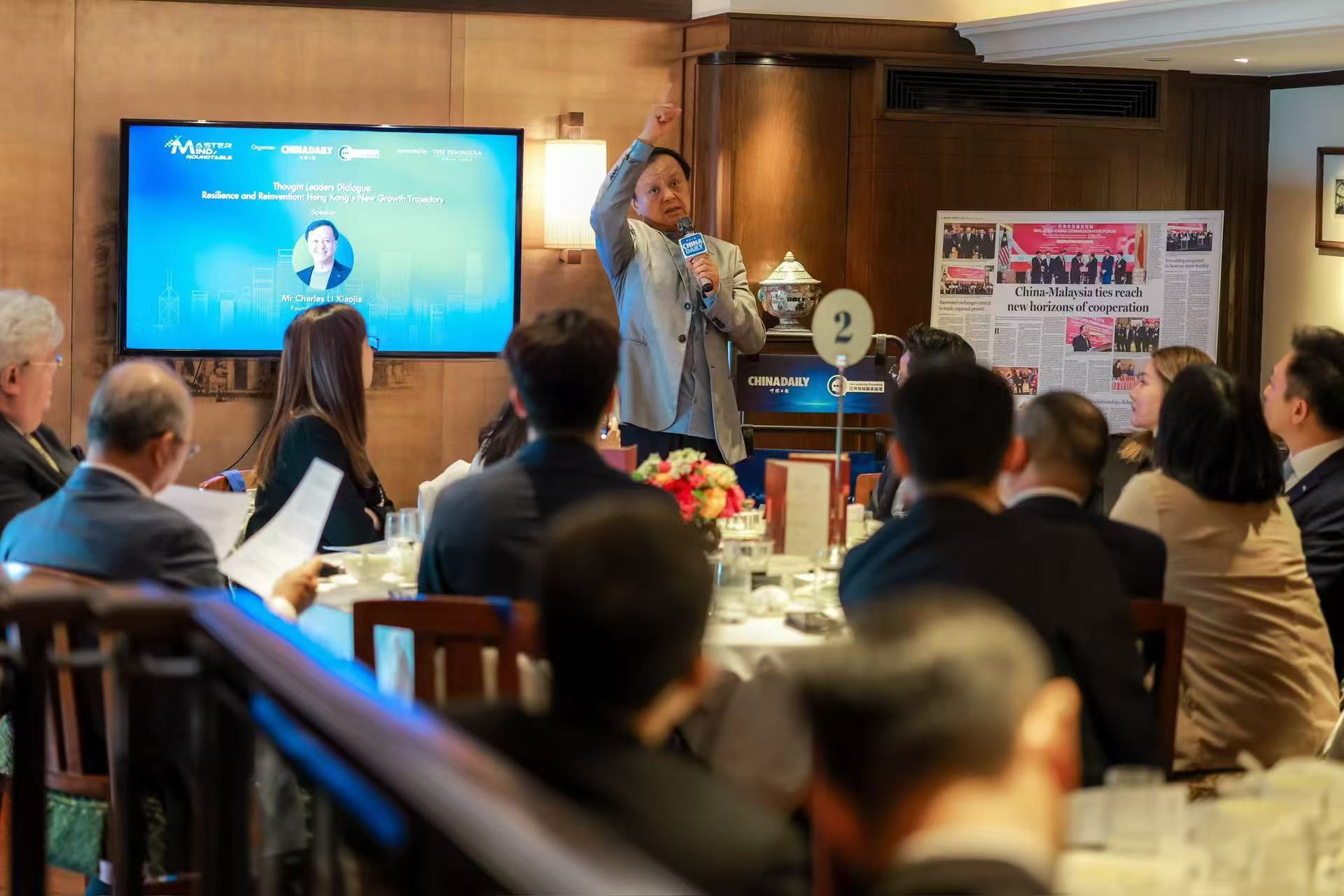
Edmund Lee, chairman of the Technology Incubation Network, said that Hong Kong’s work culture and its investment mentality of seeking instant benefits over the past two decades have eroded the city’s competitive edge in technology.
“The concept of success has become distorted over the past 20 years, with people fixated on speculative investments. Many purchase properties expecting their value to double within a few years, rent them out as a source of income, and use the profits as leverage for further investments — glorifying effortless ways to make money and viewing early retirement as the ultimate life goal. This approach, however, is not productive for society as a whole,” Lee said.
He urged Hong Kong’s business community to shift its mindset, emphasizing the importance of developing the innovation and technology sectors, which requires long-term commitment and investment.
READ MORE: World looks to multipolar future
“New productivity development is crucial for us, and it is an important national policy. We need to collaborate closely with different mainland cities, including successful artificial intelligence companies and startup enterprises,” said William Shum, founder and CEO of Memorigin Watch Co Ltd.
The second strategy is to reposition Hong Kong as a global supply-chain management hub especially for mainland enterprises that are seeking to expand globally.
“Many mainland technology companies want to go abroad, and Hong Kong can help these companies managing overseas supply chains, helping product verification, and facilitating product distribution in overseas markets,” Sinopec (Hong Kong) Ltd Chief Supply Chain Officer Gordon Lam said.
“We should be looking at different industries’ supply-chain perspectives, rather than piecemeal or certain technology or a particular company, without looking at the whole ecosystem. We hope we can build different supply-chain capabilities in different industries looking at a more holistic approach that can revive Hong Kong,” he added.
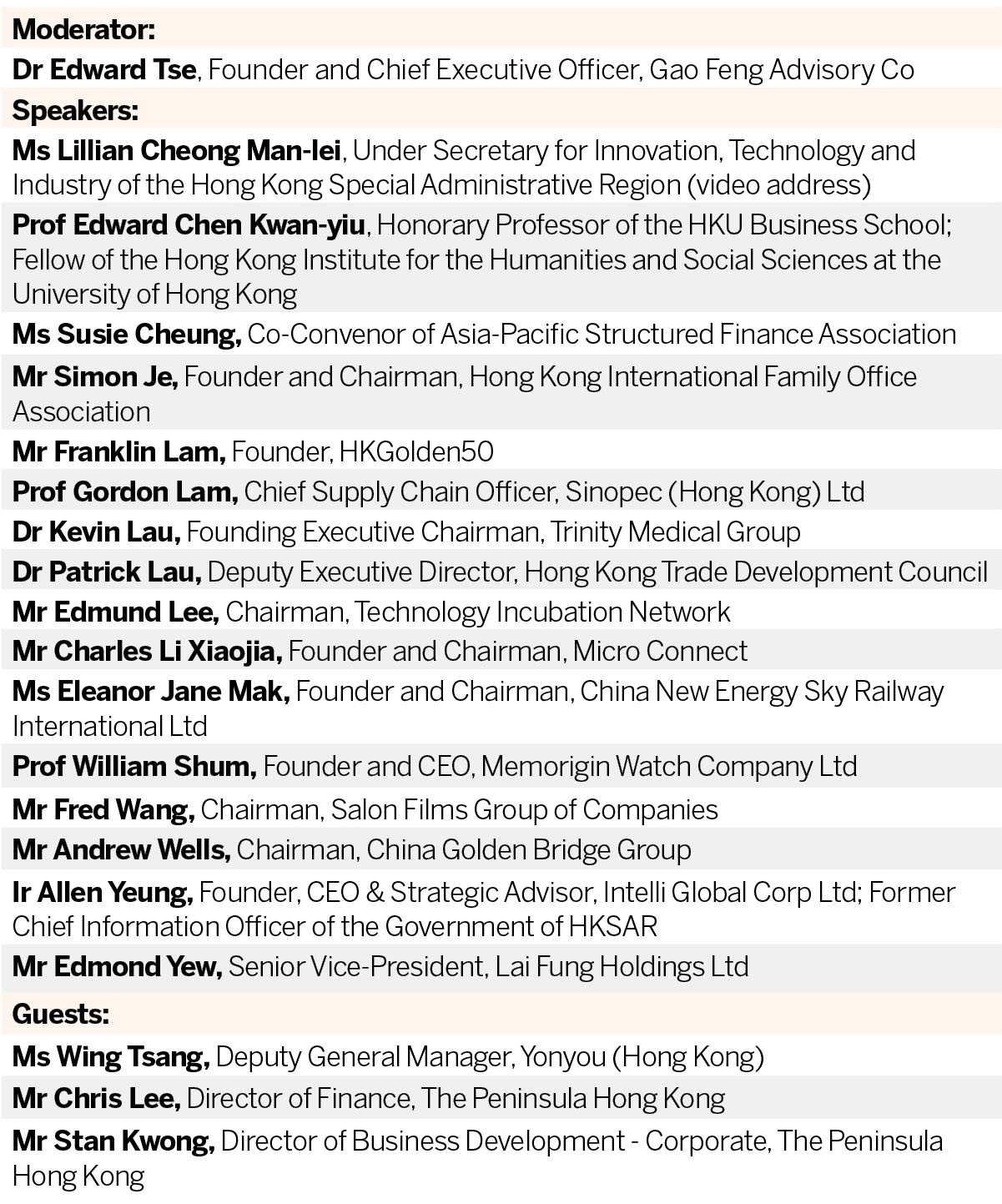
Allen Yeung, founder, CEO and strategic advisor to Intelli Global Corp Ltd and a former chief information officer of the Hong Kong SAR government, said Hong Kong should reposition itself to take on active roles along the restructured global technology supply chain amid geopolitical tensions.
“Hong Kong needs to think hard about where we can play and add value in different technology sectors within these new supply chains,” Yeung noted.
Besides, Hong Kong can ride the AI wave and become a global data hub by attracting data from the East and West.
The third engine is related to the strengthening of the traditional business and financial service sector.
Patrick Lau, deputy executive director of the Hong Kong Trade Development Council, said, “Hong Kong is a dealmaker at our events (hosted by HKTDC), when we bring together 6,000 participants. This creates an environment where investors and business partners can share perspectives, and forge partnerships.”
READ MORE: Wang: China ready to promote equal, multipolar world with EU
“Hong Kong also channels projects toward emerging opportunities, particularly in sustainability and technology. Through innovative financing solutions, we can transform traditional projects into green initiatives that align with global environmental goals,” Lau added.
Looking ahead, the Asia Summit on Global Health 2025, jointly organized by the Hong Kong government and HKTDC in May, will convene policymakers, healthcare experts, academics, and business leaders to explore opportunities in the biotechnology sector.
Susie Cheung, co-convenor of the Asia-Pacific Structured Finance Association, said that the Chinese mainland is the world’s second-largest securitization market with an issuance size by value of $264 billion in 2023, about 10 percent of the value of the US securitization market.
“As such, Hong Kong has an enhancement and navigation role to play in the building of a mainland-Hong Kong cross-border securitization platform, which could act as a ‘Structured Finance Securitization Connect’ for the listing of mainland-originated asset-backed securities on the Hong Kong Stock Exchange for offer to global investors,” she suggested.
ALSO READ: Putin: New multipolar world order to replace unipolar system
Kevin Lau, the founding executive chairman of Trinity Medical Group, said Hong Kong is uniquely positioned as a center that can provide holistic medical solutions around the world from a software and hardware perspective.
“Hong Kong started Chinese medicine education 20 years ago. From the talent pool angle, we have accumulated 20 years of highly qualified Chinese medicine practitioners,” he added.
“Moreover, Hong Kong has introduced Chinese and Western combined clinics for patients in the last 10 years and the first Chinese medicine hospital will commence operation very shortly.”
Tse, the moderator, concluded the roundtable discussion by saying, “Hong Kong people are much more proactive, much more willing to think about what we should do and in the bigger picture, especially embracing the development on the Chinese mainland and the country’s role in the world, especially in a world migrating toward much more multipolarity.”
This event was sponsored by The Peninsula Hong Kong, a renowned establishment with a 95-year history.
Situated in bustling Tsim Sha Tsui, Kowloon, The Peninsula offers arts and cultural attractions, shopping venues, and a vibrant nightlife scene.
Contact the writers at oswald@chinadailyhk.com


